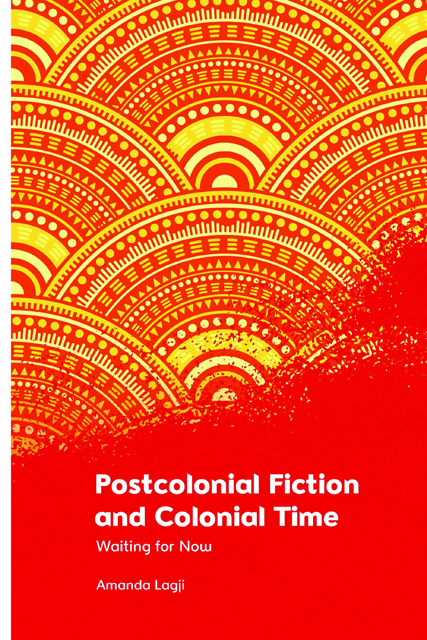Book contents
- Frontmatter
- Contents
- Acknowledgements
- Introduction
- 1 Waiting at the Heart of Colonial Time Regimes
- 2 Projects and Promissory Notes: The Waiting Rooms of V. S. Naipaul and Nadine Gordimer
- 3 Marooned Time: Disruptive Waiting and Idleness
- 4 Gendered Timescapes of Waiting: Patience and Urgency in Novels of Disillusionment
- 5 ‘Strategic Waiting’ and Reconciliation in the Aftermath of Conflict
- Conclusion
- Bibliography
- Index
Conclusion
Published online by Cambridge University Press: 25 April 2023
- Frontmatter
- Contents
- Acknowledgements
- Introduction
- 1 Waiting at the Heart of Colonial Time Regimes
- 2 Projects and Promissory Notes: The Waiting Rooms of V. S. Naipaul and Nadine Gordimer
- 3 Marooned Time: Disruptive Waiting and Idleness
- 4 Gendered Timescapes of Waiting: Patience and Urgency in Novels of Disillusionment
- 5 ‘Strategic Waiting’ and Reconciliation in the Aftermath of Conflict
- Conclusion
- Bibliography
- Index
Summary
‘He moves too slow for me, Daddy Joe; I’m tired waiting so … If a thousand years with us is but a day with God, do you think I’m required to wait all that time? … That’s no talk for me, Daddy Joe; I’ve been “standing still” long enough –I’ll “stand still” no longer.’
Martin R. Delaney, Blake; or The Huts of America: A Novel (1859)At the Black Entertainment Television (BET) Awards on 26 June 2016, activist and actor Jesse Williams accepted the Humanitarian Award with a powerful speech, decrying the inability of police in the United States to de-escalate conflicts with the Black community in the same way that they do for whites, and calling for urgent organisation and resistance: ‘Now, freedom is always coming in the hereafter but, you know what, though, the hereafter is a hustle. We want it now … We’ve been floating this country on credit for centuries, yo. And we’re done watching, and waiting while this invention called whiteness uses and abuses us.’ The Awards ceremony closed with Beyoncé and Kendrick Lamar’s surprise performance of ‘Freedom’, which for the show was remixed to include a sample from Martin Luther King Jr’s ‘I Have a Dream’ speech. From the emphasis on urgency and waiting, to freedom and resistance, the BET speeches and performances certainly echoed and underscored the sampling of King’s speech, which criticised the United States for signing and subsequently defaulting on a ‘promissory note’ of ‘unalienable Rights’. The excerpted sample from King’s speech ended just before King proclaims, ‘We have also come to this hallowed spot to remind America of the fierce urgency of Now’ –a line which instead is substituted by the rest of the anthem ‘Freedom’.
At the time of this writing, the Black Lives Matter movement has been reignited by the videotaped death of George Floyd, and calls for justice link Floyd with Breonna Taylor, Stephon Clark, Philando Castile, Alton Sterling, Tamir Rice, Sandra Bland, Rekia Boyd, Atatiana Jefferson and countless others both known and unknown murdered by police in the United States. The larger Black Lives Matter movement responds to the ‘typical origins of black leadership’ embodied in figures like King, and ‘represents a move from a singular political organizing centered on racial justice to an intersectional agenda’.
- Type
- Chapter
- Information
- Postcolonial Fiction and Colonial TimeWaiting for Now, pp. 199 - 214Publisher: Edinburgh University PressPrint publication year: 2022



